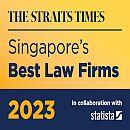E-briefing: Shopee vs Lim - A Case of Restraint of Trade and Confidentiality
There has been considerable press coverage of a recent decision by the High Court of Singapore where Shopee Singapore Pte Ltd (“Shopee”) sought to enforce a non-competition and non-solicitation clause against its former employee, Lim Teck Yong (“Lim”), who joined ByteDance Pte Ltd (“ByteDance”) as the leader for TikTok Shop, an e-commerce platform under the social media app TikTok.
Shopee claimed that Lim had access to confidential information and trade secrets during his employment, and that his new role at ByteDance posed a threat of breach of the restrictive covenants and misuse of the confidential information. Shopee applied for an interim injunction to restrain Lim from working for ByteDance pending the trial of the action.
The court dismissed Shopee’s application, finding that there were no serious questions to be tried on the validity and enforceability of the non-competition clause, and that the balance of convenience did not favour granting the injunction. The court also held that Shopee had not shown any evidence of actual or threatened breach of the non-solicitation and confidentiality clauses by Lim.
This case raises some interesting issues on the law and practice of restraint of trade clauses and confidentiality in the context of employment contracts. Some of the key points to note are:
- The scope and duration of the non-competition clause: The court found that the non-competition clause was too wide and unreasonable, as it sought to prevent Lim from working for any competitor of Shopee in any market where Shopee operated, regardless of whether Lim had any involvement or exposure to those markets during his employment. The court also noted that the duration of 12 months was excessive, given that the e-commerce industry was dynamic and constantly evolving, and that Lim’s skills and knowledge would quickly become obsolete or outdated.
- The legitimate proprietary interest to be protected: The court held that Shopee had not shown that it had any legitimate proprietary interest to be protected by the non-competition clause, as it had not identified any specific confidential information or trade secrets that Lim had access to or was likely to use or disclose in his new role. The court rejected Shopee’s argument that Lim had general know-how and insights into Shopee’s business strategies and operations, as these were not sufficiently confidential or proprietary to warrant protection. The court also observed that Shopee had not taken any steps to safeguard the confidentiality of its information, such as requiring Lim to return or delete any documents or devices containing such information upon his resignation.
- The risk of breach of the non-solicitation and confidentiality clauses: The court found that Shopee had not shown any evidence that Lim had breached or threatened to breach the non-solicitation and confidentiality clauses, which prohibited him from soliciting or enticing away any customers, suppliers, or employees of Shopee, or disclosing or using any confidential information of Shopee. The court noted that Shopee had not identified any specific instances of such conduct by Lim, and that Lim’s refusal to provide further undertakings to Shopee did not amount to a proclivity for breach. The court also pointed out that Shopee had not shown any irreparable harm or damage that would result from Lim’s alleged breach, and that any such harm or damage could be adequately compensated by damages.
- The balance of convenience favours whichever course of action has a lower risk of injustice: The court will consider the relative strength of the parties’ case and the status quo, in deciding which course of action has the least risk of injustice if it turns out to be the “wrong” course. In this case, when all the factors were considered, the fact that Lim had already started work for ByteDance worked against Shopee’s chances of obtaining an interim injunction to stop him from working for the company. As the court deemed Shopee’s case to be weak, and the status quo was that Lim had already started work for ByteDance, the court determined that it would be in the interests of justice not to disturb that status quo.
This case illustrates the challenges and difficulties faced by employers who wish to enforce restrictive covenants (and, specifically, non-compete clauses) against their former employees, especially in industries where competition is fierce, and innovation is rapid. Employers should ensure that their restrictive covenants are reasonable and proportionate to the legitimate interests they seek to protect, and that they have sufficient evidence to support their claims of breach or threat of breach. It is not sufficient to use generic or boilerplate restrictive covenant clauses, as these need to be tailored to the employer’s and employee’s specific circumstances. Employers should also adopt appropriate measures to preserve the confidentiality of their information, such as requiring their employees to sign confidentiality agreements, return or delete any confidential documents or devices upon termination, and refrain from disclosing or using any confidential information for any unauthorized purposes.
For more information, please contact our Business Development Director, Ricky Soetikno, at rickysoetikno@harryelias.com.













